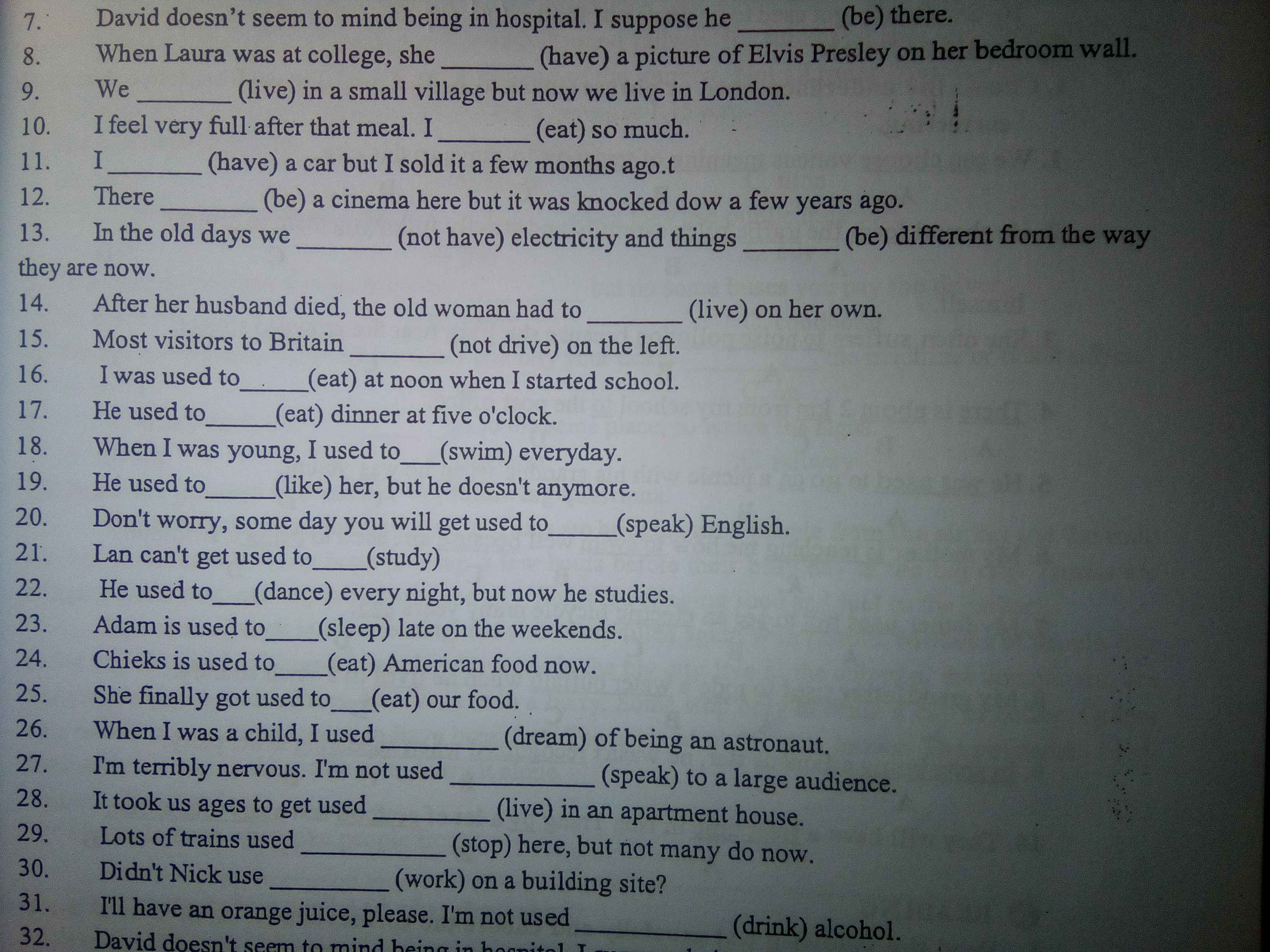
Hãy nhập câu hỏi của bạn vào đây, nếu là tài khoản VIP, bạn sẽ được ưu tiên trả lời.


1. Gerund verb (V-ing) – Danh động từ
1.1. Cách sử dụng “V-ing”
– Là chủ ngữ của câu:
Reading bored him very much.
– Bổ ngữ của động từ:
Her hobby is painting.
– Là bổ ngữ:
Seeing is believing.
– Sau giới từ:
He was accused of smuggling.
– Sau một vài động từ: avoid, mind, enjoy,…
1.2. Một số cách dùng đặc biệt của “V-ing”
* Những động từ sau được theo sau bởi “V-ing”: admit, avoid, delay, enjoy, excuse, consider, deny, finish, imagine, forgive, keep, mind, miss, postpone, practise, resist, risk, propose, detest, dread, resent, pardon, fancy…
Ex:
1. He admitted taking the money. (Anh ta thừa nhận đã lấy tiền.)
2. Would you consider selling the property? (Bạn sẽ xem xét bán nhà chứ?)
3. He kept complaining. (Anh ta vẫn tiếp tục phàn nàn.)
4. He didn’t want to risk getting wet. (Anh ta không muốn bị ướt.)
* V + giới từ: apologize to sb for, accuse sb of, insist on, feel , congratulate sb on, suspect sb of, look forward to, dream of, succeed in, object to, approve/ disapprove of…
* Gerund verb cũng theo sau những cụm từ như:
– It’s no use / It’s no good…
– There’s no point (in)…
– It’s (not) worth …
– Have difficult (in) …
– It’s a waste of time/ money …
– Spend/ waste time/money …
– Be/ get used to …
– Be/ get accustomed to …
– Do/ Would you mind … ?
– Be busy …
– What about … ? How about …?
– Go …(go shopping, go swimming…)
2. To V (Verb infinitive) – Động từ nguyên thể
2.1. Verb + to V
Những động từ sau được theo sau trực tiếp bởi to-infinitive: agree, appear, arrange, attempt, ask, decide, determine, fail, endeavour, happen, hope, learn, manage, offer, plan, prepare, promise, prove, refuse, seem, tend, threaten, volunteer, expect, want, …
Ex:
1. She agreed to pay $50.(Cô ấy đã đồng ý trả 50 đô la.)
2. Two men failed to return from the expedition.(Hai người đàn ông đã không thể trở về từ cuộc thám hiểm.)
3. The remnants refused to leave.(Những người còn sót lại từ chối rời đi.)
4. She volunteered to help the disabled. (Cô ấy tình nguyện giúp đỡ người tàn tật.)
5. He learnt to look after himself. (Anh ấy học cách tự chăm sóc mình.)
2.2. Verb + how/ what/ when/ where/ which/ why + to V
Những động từ sử dụng công thức này là: ask, decide, discover, find out, forget, know, learn, remember, see, show, think, understand, want to know, wonder…
ĐỌC THÊM Động từ tiếng Anh: Phân loại, cách dùng các loại động từ tiếng Anh
Ex:
1. He discovered how to open the safe. (Anh ấy đã phát hiện ra làm thế nào để mở két sắt.)
2. I found out where to buy cheap fruit. (Tôi đã tìm ra nơi mua hoa quả rẻ.)
3. She couldn’t know what to say. (Cô ấy không thể nghĩ ra điều gì để nói.)
4. I showed her which button to press. (Tôi chỉ cho cô ấy phải ấn nút nào.)
2.3. Verb + Object + to V
Những động từ theo công thức này là: advise, allow, enable, encourage, forbid, force, hear, instruct, invite, order, permit, persuade, request, remind, train, urge, want, tempt…
Ex:
1. These glasses will enable you to see in the dark. (Cái kính này sẽ cho phép bạn nhìn trong bóng tối.)
2. She encouraged me to try again. (Cô ấy khuyến khích tôi thử lại lần nữa.)
3. They forbade her to leave the house. (Họ cấm cô ấy rời khỏi nhà.)
4. They persuaded us to go with them. (Họ đã thuyết phục chúng tôi đi với họ.)
Theo mình ,để nhận biết các động từ chia thành V, Ving hay to V thì phải thuộc mấy động từ đấy thôi ! Còn mình thì mình làm nhiều là sẽ thuộc.

1. I prefer to play badminton.
You and me prefer to come to her house for dinner.
2. Lan prefers playing football .
They prefer going fishing.
3. My child prefers this pen to that pen.
My teacher prefers my class to Nam's class.
4.I prefer reading books to watching TV.
He prefers playing games at home to going out with me.
Theo thứ tự lần lượt nhé bạn

7. used to be
8.used to have
9.used to living
10.used to eating
11. used to have
12, there used to being
13. not used to have
14.used to living
15.not used to driving
16.ate
17.eat
18.swam
19.like
20.speaking

1) My piggy is full of money
2) He is doubtful of her
3) He is afraid of her happiness
4) He is jealous of her happiness
5) I am aware of my action

ẹnjoy giống như , đứng trước ing-Verb.
V_ing ^.^